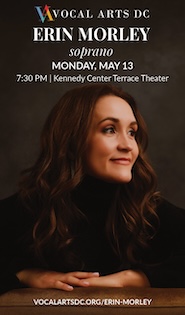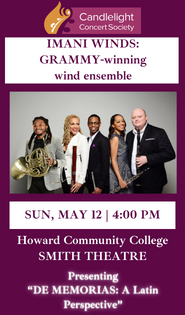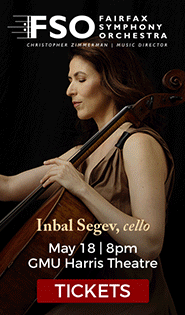A neglected Price concerto and impressive podium stand highlight NSO season finale

Joseph Young conducted the National Symphony Orchestra Thursday night at the Kennedy Center.
Joseph Young has had quite a year at the Kennedy Center. After a noteworthy Washington National Opera debut in March, the American conductor made an equally fine first appearance with the National Symphony Orchestra this week. His program, heard in the Kennedy Center Concert Hall Thursday night, combined music inspired by two Shakespeare tragedies with a neglected piece that is finally getting its happy ending.
Antonín Dvořák composed a trilogy of overtures, called Nature, Life, and Love, to be performed not long after his arrival in the United States. The last of these works was based on the story of Shakespeare’s Othello, an odd choice to represent love. Young’s clean gestures immediately clarified the soft chords of the opening measures, all unified in attack.
Likewise, the slithering jealousy theme and love music for Othello and Desdemona, with its Wagnerian chromatic harmony, featured crisp ensemble and even balance among sections. Not afraid to test the boundaries of the large orchestra’s dynamic range, Young gave the middle section an exciting tutti sound with booming low brass. Without the visual element to relate the narrative, Young cleverly leaned on extremes of tempo and texture.
Florence Price played the solo part of her Piano Concerto in One Movement at its 1934 premiere. The orchestral score was subsequently lost, until its rediscovery a few years ago. Pianist Michelle Cann has devoted herself to restoring the work to audiences everywhere. If you missed her playing it with the Baltimore Symphony Orchestra last January and with the NSO this week, she will play it again with the National Philharmonic in October.

Michelle Cann
After a soulful slow introduction by the brass and woodwinds, Cann played the opening piano cadenza with Rachmaninoff-style flourishes. Throughout the first section, her strength at the keyboard impressed, especially in thundering octaves. As she accompanied the orchestra’s full-bodied statement of the main theme, timpani strikes reinforced the pedal notes of her left hand. Young adeptly followed her tempo adjustments, bringing the NSO along faithfully.
The slow section, the high point of the concerto, opened with lush divisi strings, with the second violas given a surprisingly prominent role of melodic interest. Cann embarked on a soulful duet with assistant principal oboist Jamie Roberts, which Price infused with melodic and harmonic flavors borrowed from the American spiritual. The relatively intimate orchestration smoldered intensely, not least in a superb solo by cellist David Hardy.
Cann gave maximum verve to the compact final section, bouncing with the perky syncopation of ragtime. Enthusiastic applause coaxed the pianist into an even more sparkling encore, an Art Tatum-ization of Rachmaninoff’s Prelude in C Sharp Minor by the remarkable pianist Hazel Scott, familiar from Cann’s tribute concert to her last year. Towards the end, Scott even worked in an additional allusion, to the finale from Beethoven’s “Moonlight” Sonata.
Young concluded the evening with nine movements from Sergei Prokofiev’s score for the ballet Romeo and Juliet, selected from the different suites the composer made. (Dvořák also composed an overture on this Shakespearean story, now lost.) From the crushing crescendo of orchestral sound in the opening piece, “Montagues and Capulets,” Young made it clear he would take his time in terms of pacing, to draw out the maximum effect of the score, such as the many solos for celesta, tenor saxophone, and other woodwinds in the middle section of “Dance of the Knights.”
The “Minuet” crashed and seized in full-throated volume, featuring contrabassoon blats and a silver trumpet solo. The “Masks” movement also moved quite slowly but Young was intent again on a vivid story, painting with musical details in the absence of balletic movement. Nowhere was this emphasis more evident than the tender, utterly serene “Balcony Scene” and its yearning cello theme, where Young luxuriated in the romantic excess of the music.
The conductor made up the tempo balance with a hyperfast “Death of Tybalt,” featuring madcap antics for Mercutio and a vivid duel. The hammered chords incarnating the lament of Juliet’s mother over Tybalt were shattering. It was an unusual choice to include the “Dance of the Girls with Lilies”, a minor moment in the ballet’s fourth act, but concertmaster Nurit Bar-Josef basked in its poignant violin solos. In the final two numbers, the brass produced ear-crushing volume, leaving no doubt of the tragic conclusion.
The program will be repeated 8 p.m. Saturday. kennedy-center.org




